- Home
- Patrick Robinson
Hunter Killer Page 12
Hunter Killer Read online
Page 12
Colonel Kabeer rose to his feet and nodded a greeting to the men before him. And then he told them, encouragingly, “The Saudi army has always suffered from a great shortage of man power. Thus there is always weakness. In addition, the head of the armed forces is a Prince of the royal family, as are numerous C-in-Cs and battalion commanders.
“We should remember that at the time of our opening assaults, every one of them will be terrified that their enormous stipends from the King are about to end. It would not greatly surprise me if several of them fled the country before we fired our opening shots. I am in complete agreement with Prince Nasir, the Crown Prince, that the Saudi Army will cave in the moment we attack. So we should conduct our operation with maximum confidence, knowing that right is on our side, and so is the incoming ruling government.
“I should like to begin by outlining the precise location and state of readiness of our target…” The Colonel stepped back and pointed to a spot on the second computer screen. “This is Khamis Mushayt. It is located in the mountainous southwest of the country, in the Azir region. This, by the way, was an independent kingdom until 1922, when Abdul Aziz captured it. The entire area still has very close ties to Yemen, from where we launch our assault.
“There is huge hostility to the Saudi King down here, because they believe he has abandoned his Bedouin roots and sold out to the West. In the totally unlikely event of failure, there will be no hostility to us locally, I am certain of that.
“Khamis Mushayt, right here, is a thriving market town with with a modern souk. There’s a population of around thirty-five thousand and the town is situated twenty-two hundred meters above sea level. Except for March and August, when it rains like hell, it has a moderate climate, and there is a lot of agriculture and vegetation, should we need to hide.
“The Saudi Army’s Field Artillery and Infantry Schools are both located at Khamis Mushayt. And it’s also the headquarters of the Army’s Southern Command. There are three brigades deployed here in the south to protect the region from any invasion from Yemen. The Saudis have, rightly, never trusted them. There’s the Fourth Armored Brigade at Jirzan, on the west coast, the Tenth Mechanized Brigade at Najran, in the mountains, and the Eleventh at Sharujah to the east…right here on the edge of the Rub al-Khali—that, as you know, is the empty quarter.
“Now, you should all take a note of the GPS numbers for the King Khalid Air Base, in case anyone gets lost. It’s precisely 18.18N 29.00°, and 042.48E 20.01°. The base controls all military air traffic in the area. There is, by the way, no commercial traffic. That all goes to Abha, twenty-five miles west.
“At King Khalid we’re looking at two flying wings. One with McDonnell Douglas F-15s, the other with squadrons of British Tornado fighter bombers. In addition, there are elements of the Fourth (Southern) Air Defense Group to provide protection from air attack on the airfield. We probably should knock that out very quickly.”
General Rashood, who would assume overall command of the three attacks, then stood up to discuss deployment. “As you can see,” he began, “we have a sixty-strong squadron. Six of these will command a small headquarters, central to our communications with each other, and with Colonel Jacques Gamoudi in Riyadh, if necessary. There will be no direct communications with France under any circumstances whatsoever.
“The remainder of you will be split into three teams, each of eighteen men. Each team will arrive on station separately because it’s far less risky.
“The first diversionary attack will be on the air base’s main entrance and will be carried out by a group of al-Qaeda fighters, who will rendezvous with us when we arrive. They will provide our explosives, detonators, det-cord, and timing devices—all acquired locally. And when they launch their own attack at the gates, they will use small-arms grenades and handheld antitank rocket launchers.
“Meanwhile, Teams One and Two will cut their way through the wire and into the airbase on the far side. They will proceed to eliminate all the aircraft they can see, both on the ground and in the hangars. We already have excellent local charts and maps of the airfield, which will be distributed later. At the rear of the room you will see a large model that looks like a layout for model trains. It is in fact a very good scale model of the base.
“At the conclusion of the raid, which I anticipate will be conducted against only very light opposition, both airfield teams will move up to a secure point halfway between the base and Khamis Mushayt.
“Shortly before that, Team Three, led by me, will attack the main military compound. We will blast our way into the barracks and take the headquarters at all costs. We will inform anyone still standing that the King Khalid Air Base has fallen and that half the fighter planes in the Saudi Air Force have been destroyed—hopefully there will still be a fierce red glow in the sky, especially if we locate the fuel dump.
“And then we will demand surrender, before we blow the place to pieces. We’ll force them to drive us immediately to the commanding General and his Deputy—that’s two arrest parties of six each—and we’ll hold them at gunpoint until the C-in-C broadcasts to the entire complex ordering a complete surrender. If they resist, we’ll execute them. Which will terrify everyone else. But don’t worry, they’ll surrender. They’re only toy soldiers.
“One thing of course to remember on a mission as highly classified as this: We leave no colleague on the battlefield. Anyone hit, injured, or dead will be brought out and returned with the squadron in France. That’s one thing we can learn from the U.S. Navy SEALs. In all of their history, they have never left a man behind.”
Already those with whom General Rashood would fight were beginning to smile and talk among themselves. For the first time, they were thinking they could pull this thing off. And perhaps the most important issue was the new concept of strong local support: The explosives coming from people in the town who hated the King. The readiness of the al-Qaeda fighters—Saudis, who would be joining them. And above all the feeling that they were representing the next King. This was not some terrorist attack on the innocent. This was proper soldiering, with proper objectives, conducted under professional military commanders.
“Any idea how we’ll get in there without anyone knowing?” asked a trooper.
“No, ’course not,” replied Rashood sarcastically. “I thought we’d just hang around and see if there was a bus going our way. You have any spare Saudi riyals? We might need them for the fare.”
The whole room fell about laughing. Despite the brutal reputation of the trained killer who stood before them, Ravi Rashood always knew how to speak to his team.
“Just checking,” replied the trooper. “I’m used to coming in by parachute. And I didn’t think you’d think much of that.”
“Correct, soldier,” said Rashood. “If it eases your mind, the answer to your question is, by sea.”
“Not swimming, sir? The Red Sea’s full of sharks.”
“Not swimming,” replied General Rashood smiling. “Something more dangerous than that. But with a much better chance of survival. We won’t be dealing with that part of the plan until next week.”
General Jobert formally thanked the Hamas Commander and then outlined the ground that would be covered over the next two days. “The first session this afternoon will be devoted to commands,” he said. “Teams One and Two, both on the airfield and during preparation, will use only French since the majority of these specialist troops are from the First Marine Parachute Infantry Regiment.
“Team Three, commanded by General Rashood, will be made up mainly of Arabic-speaking personnel, with some French support from this base. All of them, however, speak English, which is the native tongue of the General himself. Therefore, we have decided that, throughout the mission, those under General Rashood’s command will converse only in English.
“However, any communication back to your six-men headquarters must be in French, and for that reason Maj. Etienne Marot will serve as General Rashood’s number two, with special responsibilit
ies for communications. Do not, however, allow that to blind you to the real reason he is here. Major Marot commands the Army’s Special Operation Light Aviation Detachment; that’s a helicopter assault team. His business is to arrive in places when he is not expected.”
There were a few chuckles around the room at that. And Major Marot himself, a tall, lean career officer from Normandy, permitted a wry smile beneath his wide black moustache.
“I wish then to deal with our fallback positions,” continued General Jobert. “These are outlined on the maps you will be given shortly. By this I mean that should Team Three run into a five-thousand-strong Saudi Army guarding the barracks throughout the night, plainly we would not carry out our attack. But as you are aware, we do not build operations such as this without considering every possibility of entry, action, and escape.
“Before I hand over to your divisional commanders, I would just like to confirm that we expect the total surrender of Khamis Mushayt to lead to a general surrender of the entire Saudi military machine. But, remember, the actual assault on the royal palaces in Riyadh does not even begin until your mission is complete.
“This a just and proper war, born of the most terrible extravagances by just one family, to the utter detriment of the people. Everything depends on your work in Khamis Mushayt. That will be the military start of the chain of events that will bring a new enlightened reign to Saudi Arabia…a new King, who is already a great friend to France and indeed to all Islamic fundamentalists throughout the Middle East. You surely go with the blessings of your God.”
General Jobert once again took his seat, and General Rashood introduced the next speaker, a distant relative of the royal family, who now commanded a battalion of al-Qaeda fighters based in Riyadh, Capt. Faisal Rahman.
Like everyone else, Captain Rahman was dressed in semi-combat gear. He rose to his feet and wished everyone “As salaam alaykum,” the traditional Bedouin greeting, which he accompanied by another familiar gesture among desert Muslims, the right hand touching the forehead and the arm coming downward in a long, graceful arch.
“I should like to tell you of a vacation in Spain made in recent years by a King of Saudi Arabia,” he said. “He arrived in a private Boeing 747 accompanied by an entourage of three hundred and fifty, and three more aircraft, one of which was kitted out as a hospital. His vast retinue swelled to over three thousand in a few days. There were more than fifty black Mercedes cars and an intensive-care unit and operating theatre built into his woodland palace near Marbella. This building is a replica of the White House in Washington, where else?
“It cost fifteen hundred dollars a day in flowers! What with the King’s water being flown in weekly from Mecca, his lamb, rice, and dates coming in from other places in Arabia, the King’s bills were knocking hard at almost five million dollars a day. By the time the enormous court of Saudi Arabia left Spain, they had banged a hole in ninety million.
“The Spanish call any Saudi ruler by one simple name: King Midas. And there are those among us who think this entirely unnecessary—this lunatic expenditure, reckless extravagance, founded on wealth essentially bestowed upon us by Allah himself.
“It’s not as if the King earned it or even won it. He was given it, at birth. In our view, he is the custodian and guardian of the nation’s wealth. It’s not his to fling around any way he wants. And it certainly ought not to be at the disposal of his thirty-five thousand relatives, who somehow believe they have the right to do anything they damn well please with it either.
“I don’t know if you are aware of this, but every last member of the Saudi royal family travels free on the national airline, Saudia. Well, there’s over thirty thousand of them now, and since it is customary for princes to have a minimum of forty sons, sometimes fifty, there may be sixty thousand of them before long. That’s two hundred of them flying free every working day of the year. And since most of them fly at least twenty times a year, that’s four thousand of ’em a day! Jumping in and out of aircraft free of charge. I have one question: is that in any way reasonable?”
The al-Qaeda commander paused. And before him he saw many heads shake, mostly in astonishment. There were also many nods of approval at his words. The numbers he quoted were indeed quite shocking. But there was a more shocking one to come.
“Twenty years ago,” said Captain Rahman, “my country held cash reserves of a hundred twenty billion dollars. Today those reserves are down to less than twenty billion. Because of our close involvement with the United States, the government is paying ‘protection money’ to al-Qaeda. Hundreds of millions of dollars. Saudi Arabia was paying the Taliban to ‘protect’ Osama bin Laden.
“The battle we are about to fight in the hills of southwestern Saudi Arabia, and in the streets of Riyadh, is not revolution, nor even jihad. We are fighting to purify a country that has gone drastically wrong.”
A young French soldier, deadly serious, called out, “And there really is a feeling in the country that will help us to achieve our victory?”
“Stronger than you will ever know,” replied the Captain. “In the mosque schools all over the country they are turning out young men who have been taught to follow the old ways, the customs of the Bedouins, the ones who represent our roots. We are a natural people of the desert, but our enemies in neighboring countries are closing in around us. Almost the whole of Islam believes we have let down the Palestinians, failed to help them in the most terrible injustices committed against them by the Zionists.
“Other Arab leaders feel we have allowed Islam to be humiliated. And, in a sense, that is precisely what the government of Saudi Arabia has allowed to happen. We were all born to be a God-fearing nation, following the words of the Koran, the teachings of the Prophet, helping the poorer parts of our nation, not spending ninety million dollars on a vacation like King Midas.”
At this point, General Rashood himself looked up. “Every Arab knows that the situation in Saudi Arabia cannot continue. There is too much education for that. I believe I read somewhere that two out of every three Ph.D.’s awarded in Saudi Arabia are for Islamic studies. The Saudi Arabian royal family’s greatest threat is from within. The clerics are teaching truth. It’s just a matter of time before the whole thing explodes.”
“Just a matter of time,” said Captain Rahman. “And I believe we will hasten that time. And the good Prince Nasir will come to power and make the changes we must have. I know this seems a very ruthless, reckless way of attaining our ends, but it is the only way. And the new Saudi ruler will owe a debt of gratitude to France that may never be repaid.” The Captain hesitated before adding, with a smile, “But I understand he will most certainly try.”
General Jobert stood up and announced, “I will now call out the members of each team. Your commanding officers have given this considerable thought. But the three teams of eighteen men have very different tasks, and the command headquarters situated in the hills close to the action also has a critical role to play.
“Please now, everyone pay attention while I make a roll call: Team One, air base assault…commanding officer Major Paul Spanier…
SUNDAY, FEBRUARY 7, 0830
PORT MILITAIRE
BREST
Two hundred and fifty miles to the west of Paris is the sprawling headquarters of the French Navy, around the estuary of Brest, where the Penfeld River runs into the bay. This is the western outpost of Brittany, home to France’s main Atlantic base, where they keep the mighty 12,000-ton Triomphant-class ballistic-missile submarines. Not to mention the main Atlantic strike force and, from 2005, the French attack submarines, the hunter-killers.
Adm. Marc Romanet, Flag Officer Submarines, and Adm. Georges Pires, Commander of the French Navy’s Special Ops Division, were standing in a light drizzle wearing heavy Navy top-coats, right out at the end of the south jetty, beyond which France’s submarines swung to port for entry into their home base.
They could see her now, way down in the bottleneck, over two miles to the west, o
n the surface, making six knots up the channel in twenty fathoms. Through the glasses Admiral Romanet could see three figures standing on the bridge. One of them he knew was the young commanding officer, Capt. Alain Roudy.
His submarine was called Perle, hull S606, right now the most important ship in the entire French fleet. This was the SSN that would attack the oil fields of Saudi Arabia, the lethal slug of war that would release four boatloads of frogmen to blast the great Gulf loading bays to smithereens. And then fire its missiles from the depths of the Persian Gulf, knocking out the huge oil complex of Abqaiq and slamming Pump Station Number One, halting the flow of the kingdom’s lifeblood,
This was she. The 2,500-ton Perle, fresh from her refit in Toulon, now with a much smaller but no less powerful nuclear reactor, and her new, almost silent primary circulation system, which probably made the Perle’s propulsion unit the quietest in all of the undersea world.
She’d been down in France’s Mediterranean Command Base for her major refit for almost six months. And she was a lot more important today than she was last May when she went in. At that time it had been assumed that the Saudi mission would be carried out by one of the brand-new boats scheduled to come out of Project Barracuda. But that program had been subject to mild but critical delay, and Prince Nasir could not wait.
He had been to see the President three times. And three times the President had insisted that the Navy move fast, in two oceans, and cripple the Saudi oil industry before the new year of 2010 was more than three months old.
The three men who had principally to deal with that request were the two Admirals who now stood at the end of the south jetty, plus their guest, who was currently sheltering from the rain in the Navy staff car parked beneath the bright quick-flashing harbor warning light at the tip of the jetty, Gaston Savary, France’s Secret Service Chief.

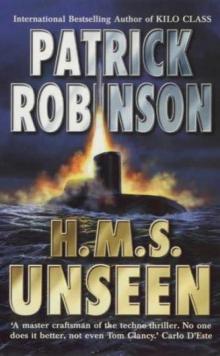 H.M.S. Unseen am-3
H.M.S. Unseen am-3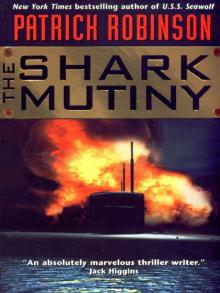 The Shark Mutiny (2001)
The Shark Mutiny (2001)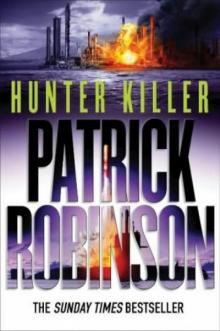 Hunter Killer am-8
Hunter Killer am-8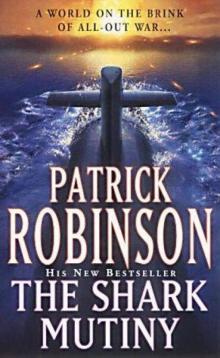 The Shark Mutiny am-5
The Shark Mutiny am-5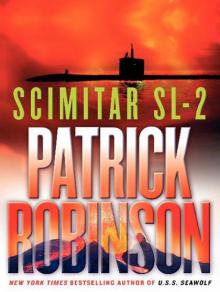 Scimitar SL-2
Scimitar SL-2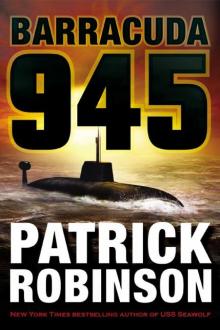 Barracuda 945 am-6
Barracuda 945 am-6 Hunter Killer
Hunter Killer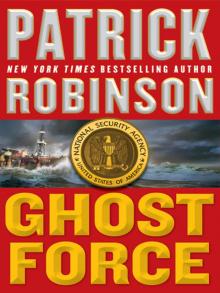 Ghost Force
Ghost Force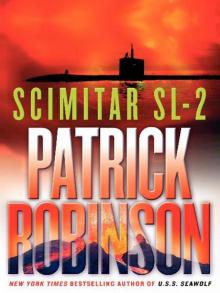 Scimitar SL-2 (2004)
Scimitar SL-2 (2004)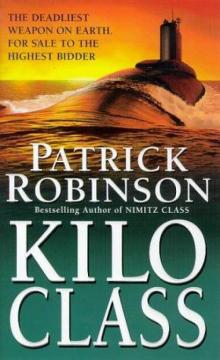 Kilo Class am-2
Kilo Class am-2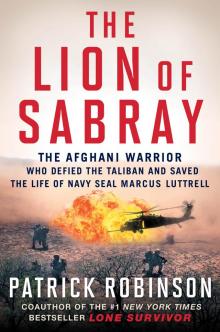 The Lion of Sabray
The Lion of Sabray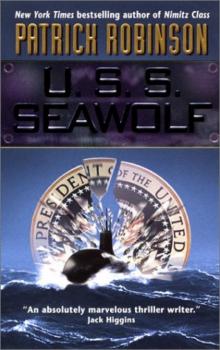 U.S.S. Seawolf am-4
U.S.S. Seawolf am-4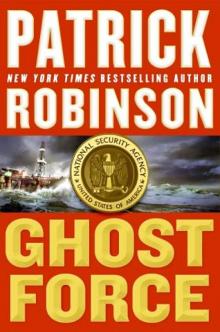 Ghost Force am-9
Ghost Force am-9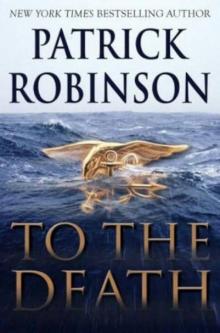 To the Death am-10
To the Death am-10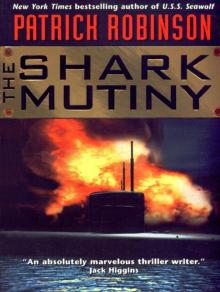 The Shark Mutiny
The Shark Mutiny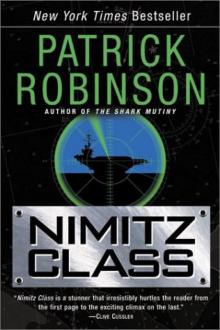 Nimitz Class am-1
Nimitz Class am-1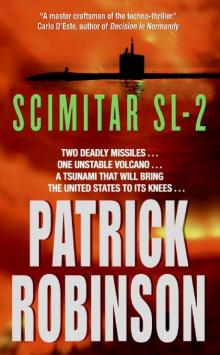 Scimitar SL-2 am-7
Scimitar SL-2 am-7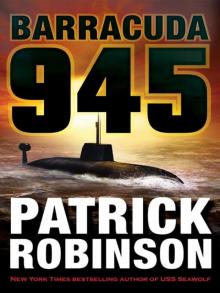 Barracuda 945
Barracuda 945 Intercept
Intercept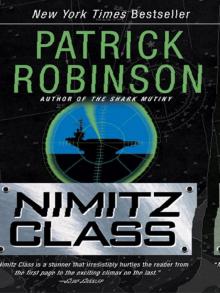 Nimitz Class (1997)
Nimitz Class (1997)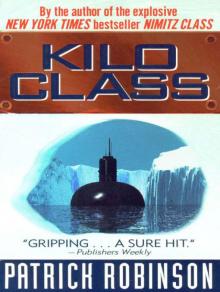 Kilo Class
Kilo Class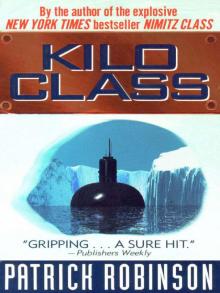 Kilo Class (1998)
Kilo Class (1998) Diamondhead
Diamondhead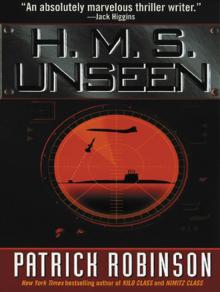 H.M.S. Unseen
H.M.S. Unseen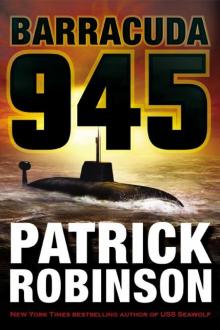 Barracuda 945 (2003)
Barracuda 945 (2003)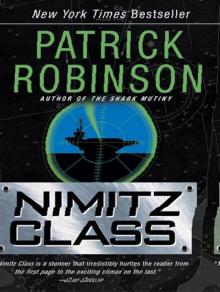 Nimitz Class
Nimitz Class The Delta Solution
The Delta Solution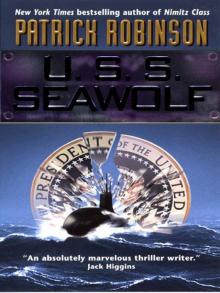 U.S.S. Seawolf
U.S.S. Seawolf